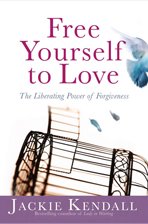A survivor of the Rwandan holocaust expresses this:
My soul was at war with itself. I’d struggled so hard to forgive but now felt duped for having done so. . . . When my neighbors whispered the stories of my family’s sadistic murders in my ear, the feeling of hatred that I thought I’d banished from my soul sprang violently from the depths of my being with renewed vigor. . . . I tossed and turned for hours. . . . I rolled out of bed and got down on my knees. “Forgive my evil thoughts, God.” A sudden rush of air flooded my lungs. I heaved a heavy sigh of relief. The anger that had gripped me like a returning malignancy was gone.4This woman’s courage to forgive what many would consider an offense too great, with memories far too relentless and vivid, is absolutely stunning.
Instead of resenting memories, one can rejoice that God wants to free us from ruling emotions that are not healthy or beneficial to ourselves or those around us. So often when I teach on forgiveness, people remark to me afterward that they were having flashbacks while I was teaching. I now alert my audiences about the potential for this and tell them not to fear the memories. Rather, they should fear shoving down more pain that will eventually rise up to rule as a despot.
When a memory or flashback intrudes on your day, examine it and consider this: Have I already forgiven this person and released this event? Or have I buried the hurt and anger, and am I still being ruled by what is buried? As David Seamands wrote: “The submerged emotions rise up and express themselves in feelings of deep depression, rage, uncontrollable lust, inferiority, fear, loneliness, and rejection.”3
The next time your brain sends you a memory, flashback, or dream, remember your need for homeostasis and rejoice that you know the 490 Principle (forgive 70 x 7—forgiving again). Practicing this principle is helping you achieve a PhD in Forgiveness—ultimate Christ-likeness. And becoming experts in forgiveness frees us to be experts in loving others. Memories are not the enemy but a vehicle for truth in the innermost part of our souls.
If you are still interested in attending the course on “The Art & Science of Forgiveness,” please come. This class is held on Wednesday’s at Grace Fellowship starting at 7:00 PM and ending at 8:10 PM (so parents can pick up kids when kids’ events end at 8:15 PM). The room is #500 (over the gym). Men and Women are both welcome and childcare is available. The only expense for this class is to get a copy of the book Free Yourself to Love. This book and your Bible will be the class texts.




















1 comment:
How can I forgive people who died already?
Post a Comment